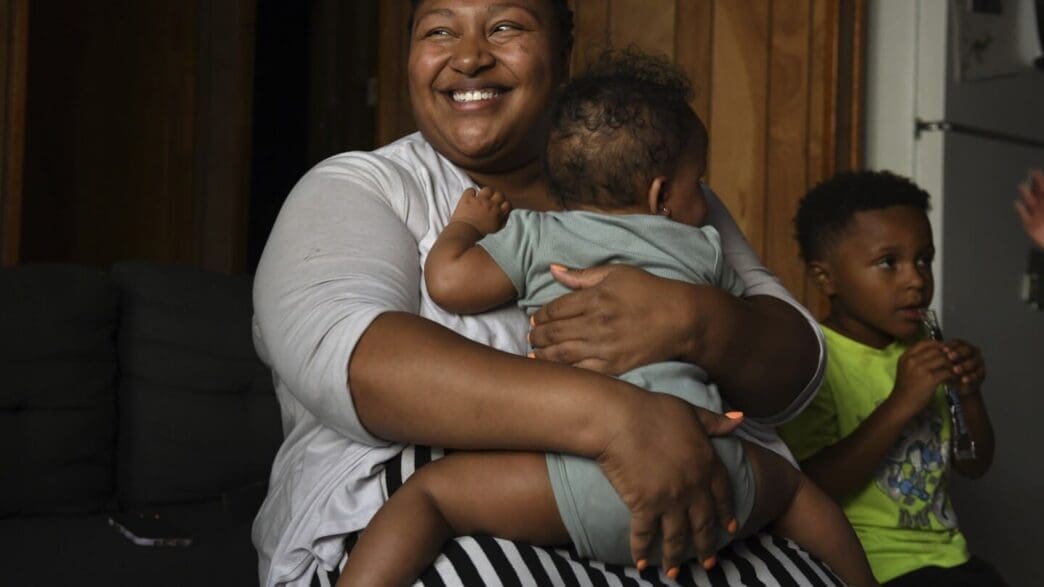Rural communities of color across the United States are adopting innovative solutions to enhance healthcare access, addressing longstanding disparities in health outcomes. In areas where traditional healthcare facilities are scarce or non-existent, community-driven initiatives are stepping up to meet the needs of underserved populations.
In Rocky Mount, North Carolina, Alexis Ratliff, a 29-year-old resident, experienced the challenges firsthand. With no local hospital available, she relied on the support of a doula during the birth of her daughter Eleah in July 2024. This personal experience highlights the broader issue of limited maternity care in rural communities, compounded by the absence of accessible hospitals.
Similarly, Michael Dennis, a medical student, and Genesis Garcia, an intern, are part of a mobile health clinic in Mt. Olive, North Carolina, organized to serve predominantly agricultural workers. These workers often face barriers such as lack of health insurance and language difficulties, impairing their ability to access necessary medical services. The clinic’s proactive approach has been crucial in reaching these populations after regular work hours.
Historically, individuals like Alma Jean Carney-Thomas have played significant roles in improving healthcare access in rural areas. As a civil rights activist and entrepreneur, she facilitated the establishment of the first health clinic in Haywood County, Tennessee. Her early experiences with inadequate hospital facilities fueled her determination to bring about positive change.
In North Carolina, mobile clinics are adapted to meet the needs of residents whose work schedules and financial constraints limit their healthcare access. For instance, the NC FIELD initiative collaborates with Campbell University’s Community Care Clinic, offering vital services to farmworkers. These clinics have been pivotal in diagnosing serious conditions like diabetes early, preventing more severe health issues.
The closure of over half of rural hospitals’ maternity wards underscores a critical issue: the intersection of low Medicaid reimbursements and workforce shortages. This scenario has forced expecting mothers like Alexis Ratliff to travel significant distances for prenatal care, underscoring the necessity for Medicaid-funded services such as doula support.
Efforts such as the Healthy Moves Initiative in Brownsville, Tennessee, under Mayor William D. Rawls Jr.’s leadership, emphasize preventive care and health education. This initiative represents a broader movement towards rethinking how rural healthcare can be delivered effectively and sustainably.
Moreover, challenges around Medicaid expansion in states like Tennessee highlight systemic issues within rural healthcare. Experts like Michael Meit advocate for Medicaid expansion to bridge existing gaps, though Harold Miller points out the complexities involving private insurance reimbursements.
In California, community health workers in Fresno are making strides in reaching Punjabi Sikh immigrants. These workers go door-to-door to ensure medical assistance reaches those working in farms and meatpacking plants. Such personalized approaches are proving effective in overcoming distrust and logistical barriers.
Alana Knudson from the NORC Walsh Center for Rural Health Analysis stresses the importance of fostering a positive outlook within these communities. Changing perceptions about rural America from negative stereotypes to vibrant, proactive environments is essential for attracting talent and resources.
The drive to improve healthcare in rural communities of color is generating meaningful progress. Through local initiatives and community engagement, these areas are redefining healthcare accessibility, emphasizing the need for immediate action and sustainable solutions. The collective effort of individuals and organizations is testament to the transformative power of community-driven healthcare solutions.
Source: Apnews








